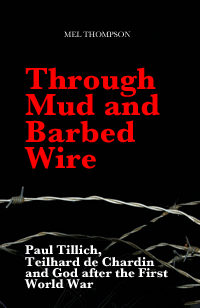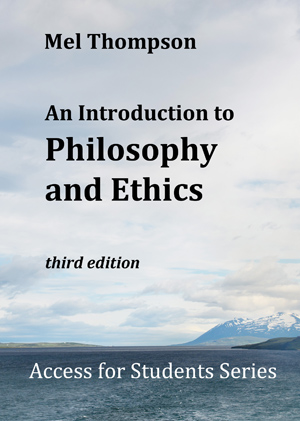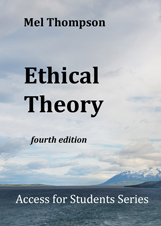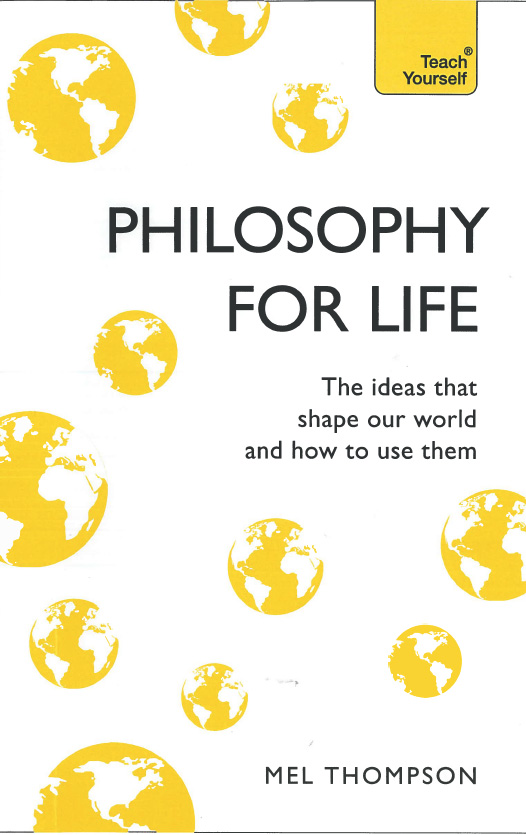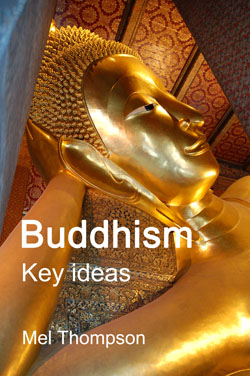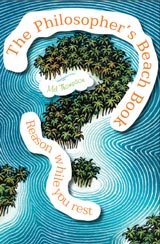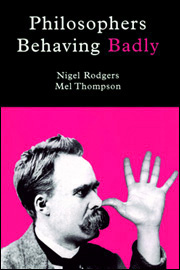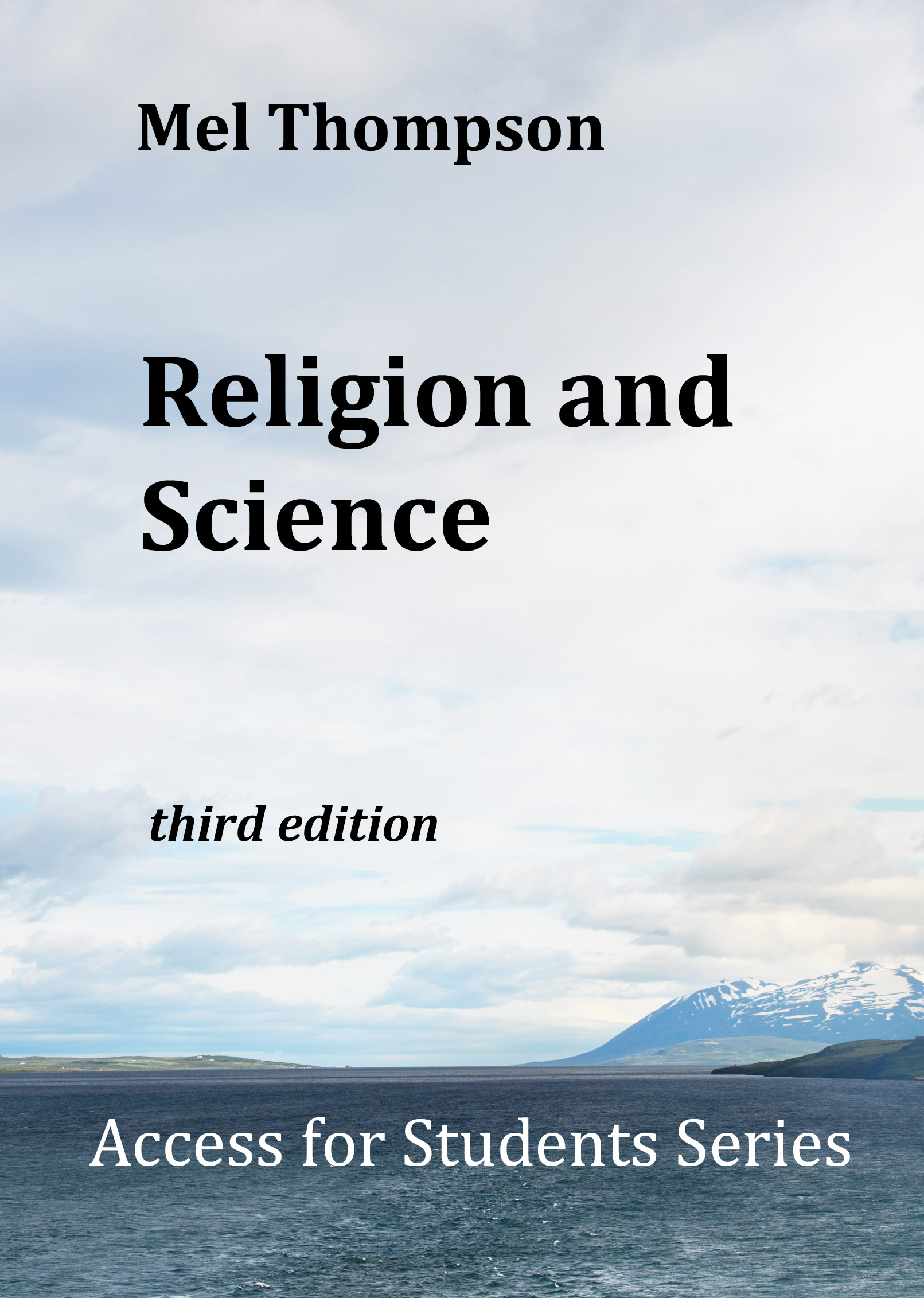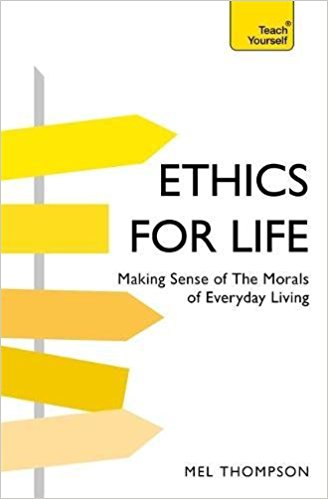Can Natural Law Escape Aquinas?
Contents
Aristotle, the Stoics and Cicero
The necessary starting point for ethics
Introduction
Ideas seldom come individually wrapped, but form part of a web, each influenced by the particular circumstances in which it was expressed and the intellectual world of its time. Glancing at examination specifications and textbooks for Religious Studies, however, one might be tempted to assume that Natural Law, Utilitarianism, Kantian Ethics and Virtue Ethics form a set of self-contained alternatives. Natural Law – ah, yes, Aristotle, Aquinas and Catholic arguments about sex and procreation. That may serve as a caricature, but life is never that simple. As presented by Aristotle, ‘natural law’ introduces a set of fundamental questions about morality, politics, human rights and the nature and value of human beings. But, in the 13th century, his ideas were taken up by Aquinas, who was hugely successful in giving them a new and overtly religious context, influenced by Plato and Augustine. Aristotle had produced moral philosophy; Aquinas turned it into moral theology, and in doing so influenced the way we perceive natural law today.
That may explain why Natural Law has often been neglected in recent discussions of ethics. So, for example, The Blackwell Guide to Ethical Theory (2nd ed, 2013) has no article on Natural Law, nor does it appear in the index. Instead, you find ‘naturalism’, ‘natural properties’ and ‘naturalistic moral realism’ and ‘natural rights theories’ being discussed. Although books continue to be written about Aquinas’ natural law ethics, they generally come from Theology and Religious Studies departments, particularly Catholic ones.
I want to argue that natural law questions are still relevant: Is morality based on matters of fact? Do we have a natural sense of morality, or is it culturally conditioned? What are human rights? Can we avoid nihilism? Are there limits to relativism? These are at the heart of what ‘natural law’ ethics is about, but they often surface without that label and outside the religious ghetto into which Aquinas installed it.
I am not saying that Aquinas did anything wrong in using Aristotle to form the basis of moral theology, of course not; he explored the best available philosophy of his day in order to show that Christian beliefs were compatible with the rigorous application of human reason, and today there are some wonderful books on Aquinas written from within what I have termed the ‘ghetto’ – Perfecting Human Actions: St. Thomas Aquinas on Human Participation in Eternal Law, by John Rziha (Catholic University of America Press, 2009), being one example – but there is a danger that this split between religious and secular approaches will deprive natural law ideas of the exposure they deserve in the wider world of secular ethics.
Aristotle, the Stoics and Cicero
Plato had argued that the things we encounter in this world are shadows, mere copies of the ‘forms’ – eternal realities and perfections (including goodness, justice, beauty) that we can understand only if we are able to get out of the cave (to use his famous analogy in The Republic) of ordinary experience. Aristotle took a very different approach. He denied the external ‘forms’ of Plato, but considered that everything could be considered in terms of its inherent essence – what it is that makes it distinctively itself. Consider a tree. Plato would say that all these various examples of trees I see before me are rightly called trees because they participate in the ‘form of the tree’ as an external ideal. Aristotle wants to say what it is that makes a tree a tree without that external reference. In other words, he considers roots, trunk, branches and leaves and says that together these form the essence of what he means by a tree. Trees are trees because they share this essence. His philosophy is closer to modern science, because it is based on an analysis of the things we actually experience, not on some eternal world of forms.
But alongside this, we need to keep in mind another aspect of Aristotle’s philosophy. He argued that everything had four kinds of cause:
1) Material cause – the stuff out of which something is made
2) Formal cause – the kind of thing something is, its essence
3) Efficient cause – that which brought it about (what we normally mean by ‘cause’)
4) Final cause – its goal, purpose or end (telos in Greek).
Our senses are good at understanding material and efficient causes; indeed, that is what science is all about. But when it comes for formal and final causes, we need something more. They are an interpretation of what we experience; they are what happens when human reason asks about what makes a tree a tree, or what place trees have within the overall scheme of nature.
Aristotle’s natural law ethics follows from the second and fourth kind of cause, applied to human life. To know what is right, good, beautiful or fine (for which he used the term kalon) for us, we need to know what we are (our essence) and what we are for. He saw people as both rational and political (or social) and argued that they would flourish only if they cultivated qualities (or virtues) in line with their rational and social nature. This is the basis of his natural law ethics.
Later, the Stoics argued that human reason, far from being an anomaly within an impersonal and material universe, was an aspect of the basic logos (word) or rational principle underlying everything. People strive for happiness, but it may be found only in that which promotes human flourishing – in other words, the ability of each person to fulfil his or her potential – and that involves living in a natural harmony with the universe.
This approach to ethics is well summed up by the Roman thinker, Cicero, who argued (in De Republica ) that natural law is reason in agreement with nature, and that whoever goes against it ‘is fleeing from himself and denying his human nature.’ He also considered that natural law requires us to contribute to the good of society as a whole.
Notice these key features about natural law: it is rational, social, and aims at promoting human flourishing; it is not imposed from outside, but develops from a reasoned examination of human life, its needs and its potential.
Thomas Aquinas (1225 – 74)
His dates say it all; Aquinas lived at a time when universities were being established, Greek philosophy was re-discovered in the West and new ideas were explored and debated. Through an illustrious and prolific academic life at the Universities of Naples, Paris and Cologne, ending up at Rome as papal theologian, Aquinas’ principal aim was to integrate Aristotle’s philosophy with Christian teaching. Aquinas worked as a priest and Dominican friar in the service of the Church. He used Aristotle to underpin what he already believed, and had to believe. In terms of ethics, he combined natural law arguments with the idea of law as given by God.
Aquinas used Aristotle as the basis for this ‘Five Ways’ or arguments for the existence of God. He took his ideas of the unmoved mover and uncaused cause and tried to show that these in fact pointed to God. Each argument ends with a jump – one moment you have the idea that there cannot be an infinite sequence of causes, and therefore that there must be something that causes everything else without itself being caused, and then he says that ‘all understand that to be God.’ Notice the way he argues here. Since he already believes in God, he is able to make the identification of the uncaused cause with God, but for someone who does not, there is no logical reason to take that final step (unless, of course, one simply re-defines God as the ‘uncaused cause’). We will see that he makes a similar jump in his theory of natural law.
In keeping with the intellectual milieu of his times, he believed that everyone had God-given reason, and was therefore capable of understanding his or her own nature and the purpose of life. Like Aristotle and the Stoics before him, Aquinas held that one should act in a way that reflected the essence of human life, since that would lead to human flourishing, both for the individual and the community. He saw natural law as reflecting ‘the rule of reason for the common good.’
His discussion of natural law is set out in Summa Theologica (the translation used here is provided by the Catholic website New Advent, www.newadvent.org ), mainly in his discussion of questions 90 to 94. He claims that ‘Whatever is contrary to reason is contrary to the nature of human beings as such’ and that ‘the first principle in practical matters, which are the object of the practical reason, is the last end: and the last end of human life is bliss or happiness.’ His basic position, unsurprisingly, is that ‘good is to be done and evil avoided’, but human reason suggests that everything should be done for the common good, rather than what might benefit a particular person or group at the expense of the good of the wider society. So far, so Aristotle.
Vice is that which goes against nature, and we can be led into vice by following what Aquinas calls our ‘sensitive nature’ – in other words, the life we enjoy through our senses. We share that sensitive nature with other animals, but what makes humankind different is reason – so to follow natural law, it is not enough to act like an animal, one should act as a rational animal. Thus we are ‘inclined to act according to reason’ although we may be perverted in this ‘by passion, by evil habit, or evil disposition of nature.’
He then examines various fundamental human needs – the need to preserve our own life (which translates as the right of self-defence), the need for sexual intercourse, leading to offspring and the rearing of children. These humankind shares with other animal species. They are not wrong, but are only part of human experience; the other part – which Aquinas sees as given by God – is to enjoy the life of reason, to know God and to live together in society. Reason therefore trumps observed nature: ‘since the rational soul is the proper form of man, there is in every man a natural inclination to act according to reason, and this is to act according to nature.’
Aquinas holds that God has instilled natural law into human hearts. But this is then supplemented by those things to which we are not naturally inclined, but which ‘through the inquiry of reason, have been found by men to be conducive to well-being.’ In considering whether natural law is the same for everyone, he argues that its general principles are indeed universal, but that their application to particular situations will differ. So you have general principles, instilled by God into human hearts and known to all through their conscience, and detailed rules which reason derives from them.
To illustrate this application of reason he says that, as a general principle, things entrusted to another person should be returned to their owner when required. But if doing so might cause injury – e.g. returning weapons that might then be used against one’s own country – then it would be unreasonable to follow the general principle in that specific case.
We are not just animals, but rational animals. Natural law, for Aquinas, is not simply a matter of observing nature and acting in accordance with it, but of rationally examining nature and drawing logical conclusions from it. This broad application of natural law as an ‘application of reason for the common good’ may be missed if its ‘natural’ tag means that it is applied mainly to the biological aspects of life, particularly sexuality and reproduction. For those of you who assume that a discussion of human sexuality can never be boring, let me assure you that the detailed analysis of the rational requirements of the sexual act, related to its ‘unitive aspects’ (in other words, relationships) and ‘procreative aspects’ can indeed be just that. A strict and narrow application of natural law theory, in which the sexual act is seen primarily in its reproductive context, rules that masturbation, homosexuality, anal sex, and oral sex are wrong – not because they are not ‘natural’ (they result from desires that are experienced as very natural, even compulsive), but because they do not accord with a rational interpretation of sexuality in terms of producing children. God gives a natural desire that leads to procreation; reason takes this and produces detailed rules, but those who do so often miss the flexibility that Aquinas built into his system.
Natural Law and Eternal Law
In question 91 of the Summa Theologica, Aquinas speaks of the natural law as partaking in the Eternal Law of God; it is a limited, partial understanding of that more perfect Law. Like everyone steeped in theology in his day, Aquinas naturally tends towards a Platonic, dualistic view – with the eternal God on one side, and the conditioned world on the other. Christianity had always tended to favour Plato over Aristotle, as is particularly seen in the work of St Augustine – with the failure of our earthly city we look to the eternal and perfect City of God. Reality is not here, with the particular things we encounter, but up or out there, in an ideal divine realm, and this was the starting point for religious thought, even in the 13th century, when Aristotle was being rediscovered. By giving primacy to the Eternal Law over the Natural Law, Aquinas was opting for Plato, while using – and celebrating – the arguments of Aristotle.
This shifts the whole interpretation of natural law in Aquinas, Aristotle’s argument becomes a secular vindication of God’s law. Natural law has become no more than a half-way-house, a rational first step towards understanding God’s intention for the world. Just as, in his arguments for the existence of God, Aquinas makes the leap from an uncaused cause to God, so here he leaps from a rational interpretation of human flourishing, to an understanding of God’s eternal law. Principles devised by human reason may now be given divine authority, if they appear to be in line with the Church’s teaching and scripture.
If you believe that God created and designed the world, made humankind in his own image and gave it reason, then it is logical to believe that human reason will have some natural but partial understanding of the Eternal Law by which God providentially governs the world – and that partial understanding, through arguments presented by Aristotle, becomes ‘natural law.’ Aquinas has thus locked Natural Law into a religious frame of reference. He backs both horses; he uses Aristotle for rational arguments that are independent of Christian belief, but still wants to affirm a Platonic objectivity for truth, justice and goodness, grounded in God. In terms of secular ethics, Aquinas embraced Aristotle and strangled him at the same time.
Aquinas’ work became definitive for Catholic teaching, so that Catholic theologians are required to interpret, rather than challenge Aquinas. Hence there have developed different approaches to his idea of natural law. Some have argued that natural law should give the possibility of autonomous ethics, independent of Catholic moral teaching, although perfectly in line with it. Others – the more traditional – have been accused of taking too physical or biological an approach to what is deemed ‘natural’, especially in matters of sexuality and reproduction. The arguments and subtle differences in interpretation are complex and well beyond the scope of this article. For anyone determined to understand the debates, they are well illustrated in Martin Rhonheimer’s Natural Law and Practical Reason (Fordham University Press, 2000). That said, the Catechism of the Catholic Church describes natural law as ‘the original moral sense which enables men to discover by reason the good,’ which suggests that it can be seen as a genuinely autonomous argument, even if set within a religious context.
Natural law goes viral
So what has happened to natural law within secular ethical debate? Can it escape the religious context provided for it by Aquinas? The issues it deals with are still there, often hidden and unidentified, at the basis of much secular ethical thinking. Here are a few pointers to where they may be found.
Natural law theory informs a discussion of ‘rights’. Rights are absolutely central to most people’s sense of moral obligation. They protect us from exploitation in the name of a common good that overrides individual or group rights. Most ethical issues today embody some issue concerned with rights: the right to life, the right to enjoy family life, the rights of the unborn child, the rights of individuals and groups to live free from persecution on the grounds of age, or sexual orientation, or race, or religion. A child has a right to be nurtured, educated, and enabled to grow into a mature human being, free from exploitation and abuse. These can only be based on exactly the sort of first principle examination of human life and society that Aristotle used.
Today, natural law is probably most evident in the philosophy of law, particularly seen in the work of John Finnis (see Natural Law and Natural Rights, 1980). There are certain basic ‘goods’ to which people are entitled, and this forms the basis of human and other rights. His approach of practical reasonableness in legal and moral issues follows Aristotle.
In terms of social and economic justice, one of the most influential (and challenged) arguments of modern times comes from John Rawls (A Theory of Justice, 1971) who devised a thought experiment in which a group of people forget who they are and what their position is in society. They are then asked to devise rules to make sure that resources are distributed fairly. He assumes that – shorn of our differences – there are certain basic needs that we have in common, and that reason can provide principles that ensure fairness. Once again, back to natural law.
Virtue ethics is popular today, but is essentially another form of Aristotle’s natural law theory. Like natural law, it makes human flourishing the goal of the good life, but explores the cultivation of virtues rather than the evaluation of particular actions.
Some moral theories (expressivism, emotivism) argue that moral claims are not objectively true or false, but only reflects the wishes of the person making them. By contrast Natural law is a classic example of moral realism – right and wrong are out there to be discovered; if we get them right, we will flourish. J L Mackie (Ethics: Inventing right and wrong, 1977) argues that a sceptic will hold that belief in objective moral values is ‘built into ordinary moral language’ but that such a belief is false. He rejects any objectivity or authority given in the way the world it, and regards it as a fundamental mistake. Morality becomes a matter of choice, a human construction, put together for any number of human reasons – social cohesion, enlightened self-interest and so on. But the problem remains, once you are free from such a ‘mistake’, how do you justify morality? Where does the moral sense come from? On what basis might moral disagreements to be resolved? Natural law continues to contribute here, for it starts from the common intuition that some things like child abuse, or slavery, are always wrong, and then uses reason to construct general ethical principles on that basis.
The necessary starting point for ethics
Life cannot be judged on a cost/benefit basis. To keep a genuinely moral system of thought in play, there needs to be a link between decision making and fundamental values – and that is precisely where Natural Law comes into its own. All moral theories, if they are not to be based on an arbitrary set of principles, are going to need justification in terms of human ‘good’ and of some sense of the place of humankind in the overall scheme of things. Unless you have a view of what human flourishing is about, and recognise that its promotion is basic to the moral sense, then no ethical argument will be sufficiently grounded to be persuasive. So the key features of ‘natural law’ continue to flourish, hidden in the foundations of many other ethical theories and issues.


